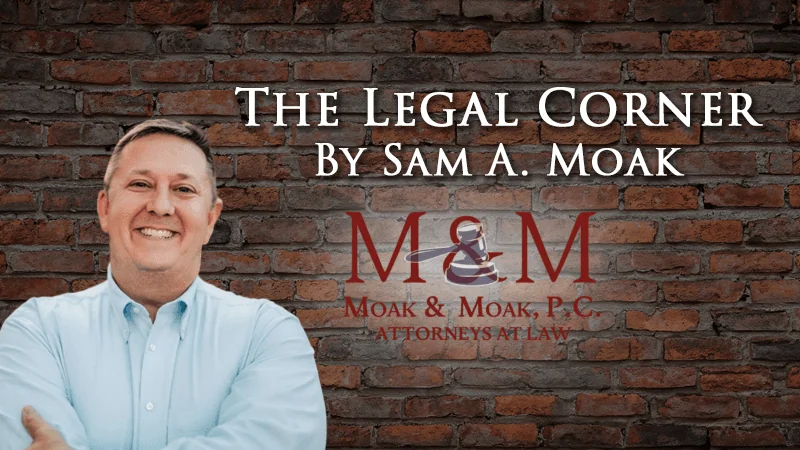The information in this column is not intended as legal advice but to provide a general understanding of the law. Any readers with a legal problem, including those whose questions are addressed here, should consult an attorney for advice on their particular circumstances.
One of the greatest concerns for my clients is that they may end up in a nursing home. This not only means a great loss of personal autonomy, but also a tremendous financial price. Many seniors are watching their retirement funds or “nest eggs” shrink as the financial crisis affecting our country deepens. As a result, many are seeking counsel on how to shelter their assets from nursing home care costs.
A relatively new industry has arisen as a result of these fears. These “asset protection” firms encourage their clients to shelter their assets so that they can bequeath their home to the heirs and leave taxpayers to foot the nursing home bill. In my opinion, this is further evidence of the decaying moral fiber in our country that has led to the sad situation in many areas. It is a society’s moral obligation to take care of their elders. Not the taxpayer, but the families. A better plan would be to seek the advice of a financial planner to help the couple save money for their elder care, perhaps by utilizing long term care insurance to provide their care rather than other taxpayers footing the bill.
Many people are directed to seek Medicaid, but few even understand that system. Medicaid is a joint federal-state program that provides health insurance coverage to low income children, seniors and people with disabilities. In addition, it covers care in a nursing home for those who qualify because they have few assets. However, Medicaid will probably not provide a level or quality of care you would hope for. For example, Medicaid will not pay for your personal doctor, pharmacy or a private room. Most alarming is Medicaid’s right to recover whatever has been expended on your care.
In order to be eligible for Medicaid benefits a nursing home resident may have no more than $2,829.00/month income and $2,000.00 in “countable” assets for a single individual 2024. There are protections if one spouse has to enter a nursing home. The spouse of a nursing home resident, called the “community spouse,” is limited to one half of the couple’s joint assets up to $154,140.00 (in Texas for 2024) in “countable” assets. This figure changes each year to reflect inflation. In addition, the community spouse may keep the first $30,828.00 (again in 2024 for Texas), even if that is more than half of the couple’s assets. The maximum allowance in Texas is up to $154,140.00.
All assets are counted against these limits unless the assets fall within a short list of “noncountable” assets.
Noncountable assets are limited to the following:
Personal possessions, such as clothing, furniture and jewelry;
One motor vehicle, valued up to $4,500.00 for unmarried recipients and of any value for the healthy community spouse;
The applicant’s principal residence up to $713,000.00 (in 2024 for Texas);
Prepaid funeral plans and a small amount of life insurance (face value less than $1,500.00);
Assets that are considered “inaccessible” for one reason or another.
The second major rule of Medicaid eligibility is the penalty for transferring assets. Medicaid does not want you to move into a nursing home on Monday, transfer your assets on Tuesday and apply for Medicaid on Wednesday. Congress has imposed penalties on the transfer of assets without receiving fair value in return. The Deficit Reduction Act of 2005 (DRA) has made these restrictions very severe.
A common hurdle in qualifying for Medicaid is gifting of one’s assets in order to qualify. The rules regarding gifting are quite complex. Gifts made during the 60 calendar months prior to the Medicaid application month may result in a loss of eligibility for a calculated period of time.
The penalty period is calculated by dividing the total amount gifted within the prior 60 calendar months by $242.13 (considered the average daily cost of nursing home care in Texas in 2024). For example, if an applicant had given away $10,000.00, the period of disqualification would be calculated as follows: $10,000.00 divided by $242.13 = 41 days or about 1 and 1/2 months of disqualification.
The period of disqualification begins running on the first day of the month that your loved one entered a medical facility and met the medical need, income and resource criteria for eligibility. Be very cautious making gifts. When gifting, the gift giver can’t expect to get the money back from the gift recipient. It is a gift with no strings attached. Also, the recipient may intend to keep the gift for the giver but the recipient’s creditors or spouse or the recipient’s death may cause the funds to be diverted elsewhere. There is no way I could alert you to every possible disadvantage. One must always take into consideration “unforseen circumstances.”
There are transfers which are exceptions to the transfer penalty. They are limited to the following transfers:
To the applicant’s spouse;
To a child who is under 21 years of age or who is blind or disabled;
Into a trust for the sole benefit of a disabled individual under 65 years of age;
To a sibling who has lived in the home during the year preceding the applicant’s institutionalization and who already holds an equity interest in the home; and,
To a “caretaker child,” who is defined as a child of the applicant who lived in the house for at least two years prior to the applicant’s institutionalization and who during that period provided care that allowed the applicant to avoid a nursing home stay.
For a brief period it was against the law to help someone transfer assets improperly. This is no longer the case, although it may be again in the future. If you decide to embark on a plan to make your loved one eligible for Medicaid, it is important to avoid a claim of exploitation. Texas law defines “exploitation of an elderly person” to be the appropriation of their assets without the elderly person’s informed consent. So long as there is no one to complain about proper Medicaid planning (i.e., ALL family members agree on a course of action), then the issue will probably not arise. However, if someone perceives that you or someone else is taking advantage of your loved one, Adult Protective Services may become involved. Civil and criminal penalties can result from finding of exploitation.
Another factor to be aware of with Medicaid is that on March 1, 2005, Texas implemented the Medicaid Estate Recovery Program in compliance with federal Medicaid laws. The program is managed by the Texas Department of Aging and Disability Services.
Under this program, the state may file a claim against the estate of a deceased Medicaid recipient, age 55 and older, who applied for certain long-term care services on or after March 1, 2005. Claims include the cost of services, hospital care, and prescription drugs supported by Medicaid.
Remember, nothing from the government comes for free. There are always strings attached and before you blindly apply for Medicaid, know all the facts so that you can make an informed decision. There are a lot of myths and untruths out there about Medicaid, seek legal advice from somewhere other than the coffee bar.
If you find yourself in the age group of 50 to 70 you should start researching long-term care insurance. The younger you are when you apply the better. Why should you consider buying long-term care insurance? The most common reason is to insure against impoverishment. However, you may just want to ensure that you do not have to use any of your life savings or assets to pay for your living expenses. Finally, you may want to leave an inheritance to your children or grandchildren. Another common belief is you can’t take it with you, so you might as well spend it all before you go. Your choice to purchase long-term care insurance can only be determined by your personal values and goals.
I hope the information provided here is helpful. If you have any questions regarding this, please consult with an attorney skilled in estate planning and elder law.
Sam A. Moak is an attorney with the Huntsville law firm of Moak & Moak, P.C. He is licensed to practice in all fields of law by the Supreme Court of Texas, is a Member of the State Bar College, and is a member of the Real Estate, Probate and Trust Law Section of the State Bar of Texas. www.moakandmoak.com


